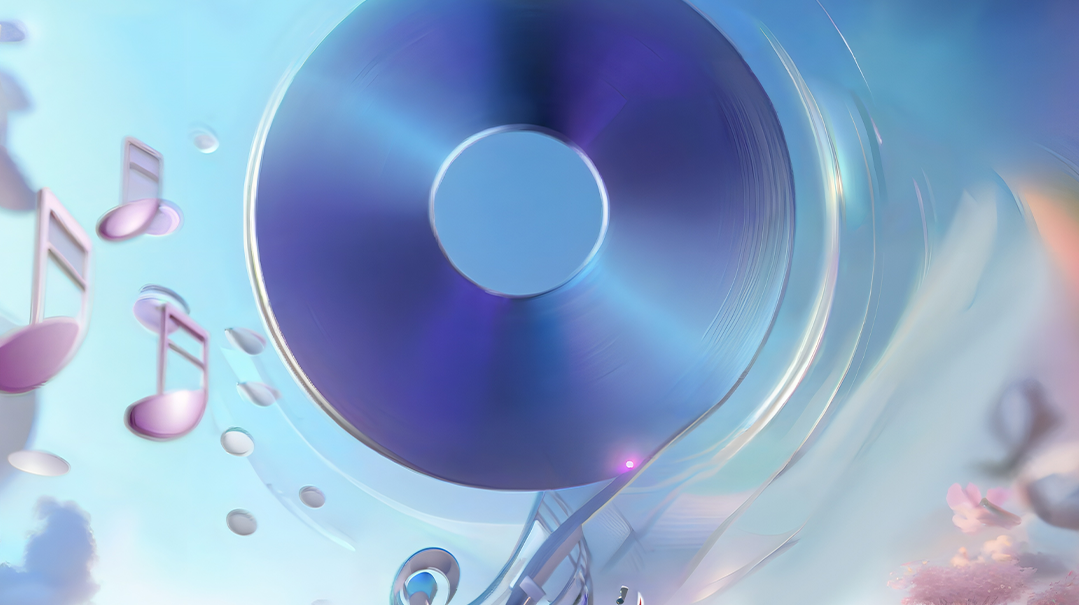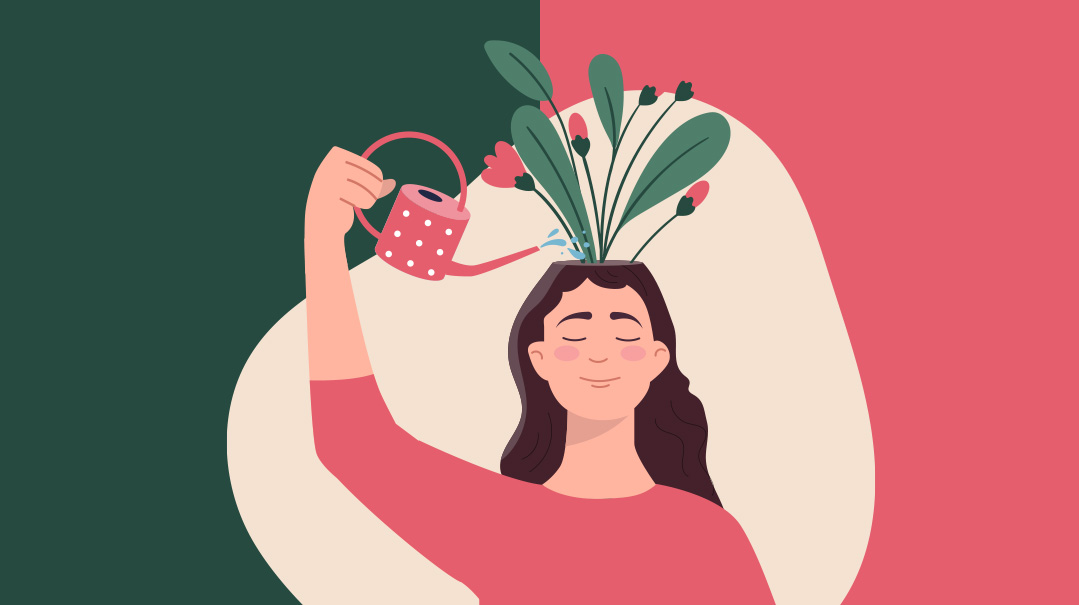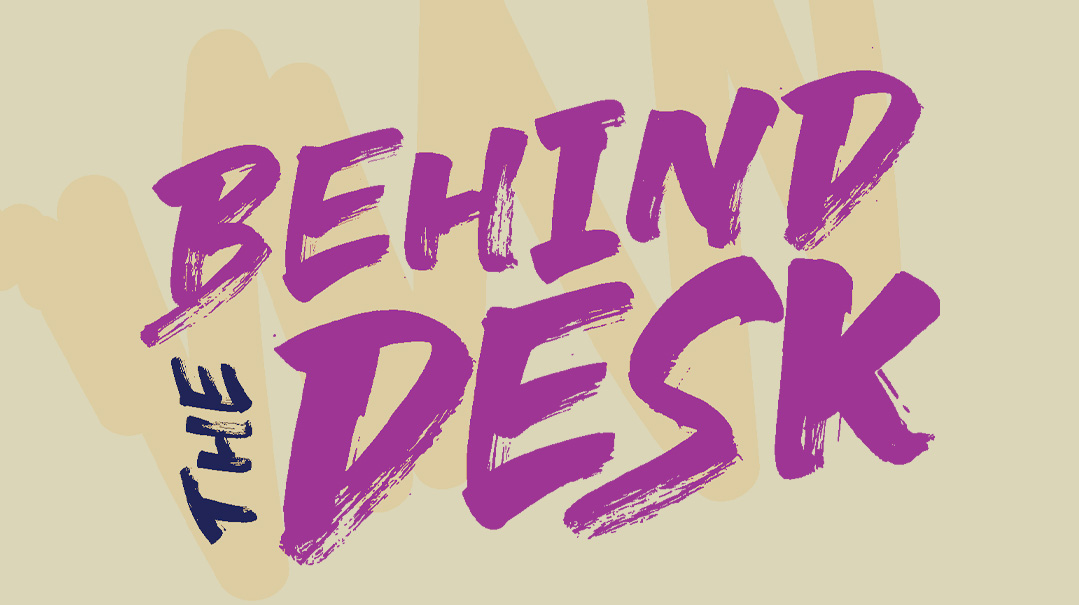Sounds of the Soul
| September 26, 2023Through the masterful notes and melodies of her music, Chayala Neuhaus offers a heartfelt soundtrack to our life’s journey.

While many kids treasured collections of stickers or stationery, Chayala Neuhaus was a bit different — she collected melodies. Growing up in the heart of Boro Park, amidst the hum of chatter and the rhythmic footfalls on its vibrant streets, Chayala’s ever-present sidekick was her tape recorder. She used it to capture fleeting moments of inspiration as they popped into her head. “I took it with me everywhere. And then, by the piano, I would record these random melodies,” she recalls. Long before she was known for her songwriting skills, she was weaving words into intricate rhymes.
For Chayala, music wasn’t just a hobby; it was a part of her DNA. “My father was a badchan when he was young, way before I was born,” she muses, “but I have some really early memories of him being great with rhyme. My house was pretty musical, so it wasn’t foreign to me when I started composing. My mother encouraged me to pursue every musical opportunity that came my way.”
By the time she was eleven, her fingers danced effortlessly over the piano keys, as she crafted fully formed songs. Chayala knew that someday she’d end up at the piano. “That was like, a given.” As she got into her teen years, she imagined teaching others the beauty of piano, secretly hoping to reach the world with her songs.
Fast forward a few years. While Chayala became a piano teacher and taught music in schools, she simultaneously wrote and recorded her songs. At that time, her music wasn’t for famous singers but instead tailored for camps and schools, which she recorded in her studio. “The idea of a home studio became popular when I was an older teen, and I got right into it. It was the perfect timing, because that was when camps and schools started to need recorded songs.” She immersed herself in training, learning whatever she could to keep up with the evolving field.
Selling her songs to singers came about organically, around five years ago. “Basically, I did a project for an organization, and Benny Friedman sang the song. When I wrote the song, I didn’t even know he would be singing it! The next thing I know, Mordechai Shapiro reached out, saying, ‘Hey, I heard your song and it’s great. Do you have any more?’”
She pauses, reflecting. “At the time, it didn’t feel like the beginning of a new phase of my career, just a nice side thing.” Chayala was still focused on writing and teaching, but as more singers approached her for songs, it grew into more than just a side thing. “When people ask me how to sell songs to singers, I really don’t know what to tell them because I didn’t set out to do that. One thing led to another. If I saw a good opportunity, I took it.”
Art Mirroring Life
Imagine growing up and watching your own songs evolve beside you. That’s Chayala story. As a kid, she wrote more idealistic songs — sweet vignettes of a mother lighting Shabbos candles, or a little boy getting on the bus to go to cheder. But after experiencing some hard knocks in her own life, she turned to her piano, where her emotions transformed into moving melodies. “My favorite songs, and usually the ones I get the most feedback on, are the ones that were written as I thought something through or felt something through.”
2017 rolled in in a storm, one Chayala couldn’t have braced for. Her world was rocked when her family experienced a medical crisis. The future was very uncertain, and nothing was clear anymore.
“We are so used to being told that there’s a recipe to life,” Chayala shares. “You follow the recipe, put in all the ingredients, turn on the mixer, and voila! Your life will turn out the way it’s ‘supposed’ to. And it’s really not true. Hashem has a different plan for every single person. Following the recipe is not the reason we’re successful — we’re successful because we have Hashem’s strength and encouragement behind us. Even when we feel like we can’t make it through, either because we didn’t follow the recipe or the recipe isn’t working, we’ll still be okay because we still have Hashem.”
One day, needing a break from the whirlwind of doctor’s appointments and worry, she and her husband found themselves at the ocean. As the waves crashed, her husband shared a midrash from Iyov.
“Picture two waves racing to the shore,” her husband said. “One wave watching the other crash against the shoreline says, ‘Leave some shoreline for me. I also want the chance to destroy it.’ The first wave responds, ‘What do you mean? I couldn’t consume the shoreline even if I wanted to. Don’t you know there’s an invisible hand holding me back?’”
Ultimately, Chayala’s story has a happy ending. On the Thursday night before the seudas hoda'ah, Chayala wrote Holding Back the Tides (Miracles II). “My right hand was looking up the midrash in an Ein Yaakov and my left hand was stirring the soup,” she recalls with a laugh.
“We many, many times feel like the waves are going to overwhelm us,” Chayala muses. “But Hashem doesn’t allow it. Not on a personal level, not on a national level.” He always ensures that we don’t crash completely.
Hashem's Employee
Working in a creative field requires an enormous amount of faith. It’s not the type of job where you can show up every day and expect the same thing or expect to have the same output. “As a creative, you show up, you open your hand, and you wait for it to rain. It’s a gift from Hashem, and I’m very aware of that. So what I try to tell myself is that I work for Hashem.”
“There’s a process that I follow when I write a song. It’s not a recipe, but there is a process.” Chayala starts by going to her trusty piano and playing around. “Sometimes the melody shows up very quickly. Like last night, I did this melody for an upcoming project, and it only took me six minutes.” But it’s not always like that. There are days when she’ll work for twenty minutes and feel that it’s just not going. That’s when she knows it’s time to step back and come back to it later. And sometimes, she admits, that she’ll sit for a while…and nada.
“The bottom line is to keep writing,” Chayala shares. “A songwriter doesn’t only write amazing songs. And not every single song is going to be for the world. Some songs will be just for me, and that’s okay.”
Tunes that Touch the Neshamah
Have you ever felt a song tug at your heartstrings? Well, that’s Chayala’s specialty. It’s not just about music that can make you sing and dance. It’s all about the message and what it does to your insides. Even her upbeat songs are a means to deliver a message, sometimes not even with words. Her song Challenge (Miracles III) has a very driving beat. “There’s a point where I always tell the audience, you hear that, that pulsating drum hit? Feel it reverberating through your chest? That’s the sound of you smacking your challenge in the face!”
This deep connection between music and emotion isn’t just Chayala’s observation; it has been scientifically proven. Music can quite literally sync up with your heartbeat. Meditative tracks can calm you, while adrenaline-pumping ones? Well, let’s just say there’s a reason the principal doesn’t like it!
Chayala further explains the tangible connection between music and its listeners. “When they say music touches you, that’s physical. It’s not a figurative expression. It’s a literal expression. Think about it. If I look at you and you don’t like how I look, you can always close your eyes. But you cannot shut your ears in a natural way. Sound literally penetrates the human body. When you hear music, there is a physical sound wave that enters your ear canal, and then touches your eardrum, actually moving your eardrum. So when I sing to a crowd, I’m literally touching them.”
Stepping into the Spotlight
It’s only very recently that Chayala has found herself singing for live audiences, after being asked for years and years to perform. In the evolving landscape of the music world, Chayala was told by rabbanim that if there’s a way to inspire and connect to the neshamos of Jewish women and girls through music while maintaining beautiful proper boundaries, it’s an opportunity.
“It’s not something I was ever comfortable with. In general, when I sing for people, I’m always like, ‘Do I have to stand on the stage?’ I know that I do, because you can’t see me if I don’t, but I really don’t feel comfortable up there. However, beneath that discomfort, as a songwriter, my neshamah feels right at home sharing my songs with the audience.”
Performing for live audiences has given Chayala a firsthand view of how deeply her songs have impacted people. At her first Miracles kumzitz last September, she stood, nearly in shock, as nearly 2,500 voices swelled around her, singing every word of the songs she had written in the last decade and a half. “I couldn’t believe how many people were carrying the words around in their hearts.”
Chayala shares that she has a soft spot for girls who have a lot of talent but don’t want to pursue music as a career unless they can go all the way. She’s passionate that it doesn’t have to be all or nothing. “If you have the talent, there’s a way for you to use it. You may have to make some decisions about what you will and will not do, but don’t quit before you try.”
For Chayala, her lines are crystal clear: no recorded releases featuring her voice and a strict no-cameras rule. While she had to pass up on many shows because of this, there’s no shortage of opportunities. “I’ve been traveling all over the world the past year. I’ve been to Israel, Belgium, all over the states. For me, the joy is audiences. I’m crazy over audiences. I like to hear them get chizuk from my songs."
Each performance is heartfelt, sung out to faces she might not know, but feels deeply connected to. “I have no idea who I’m singing to, and really, I could just sing to myself. But you never know who in that room needs to hear what you’re singing, and which message is going to be received in which way.”
Unleashing your Creativity
Have you ever felt that little voice in your head, constantly second-guessing your choices? Yep, it’s called the “inner critic,” and the opposing force to your creativity. “Most of us have critics in our life. As we grow, we develop a strong voice inside that criticizes every step of our way. It’s there to help us make good choices and stay away from anything dangerous. But usually, it becomes too loud and just gets in the way.”
Just as a painter needs a blank canvas, or a writer an empty page, every creative soul needs silence. Silence from the inner critic, from the doubters, from the voices that say it’s not good enough.
Chayala’s met tons of creative people who will tell her that they sit down and really want to write music. They know it’s in them. Yet, when it comes down to it, they freeze. She’s even had people who tell her that when they hear a song, they think to themselves, “I could have written a song just as good.”
“So why didn’t you?” asks Chayala. “What’s holding you back? We need your idea. We need your paintbrush. We need your song. We need your pen. Whatever Hashem gave you to share with the world is needed. Nobody else in the world is gonna sing your shira.”
(Originally featured in Mishpacha Jr., Issue 980)
Oops! We could not locate your form.







